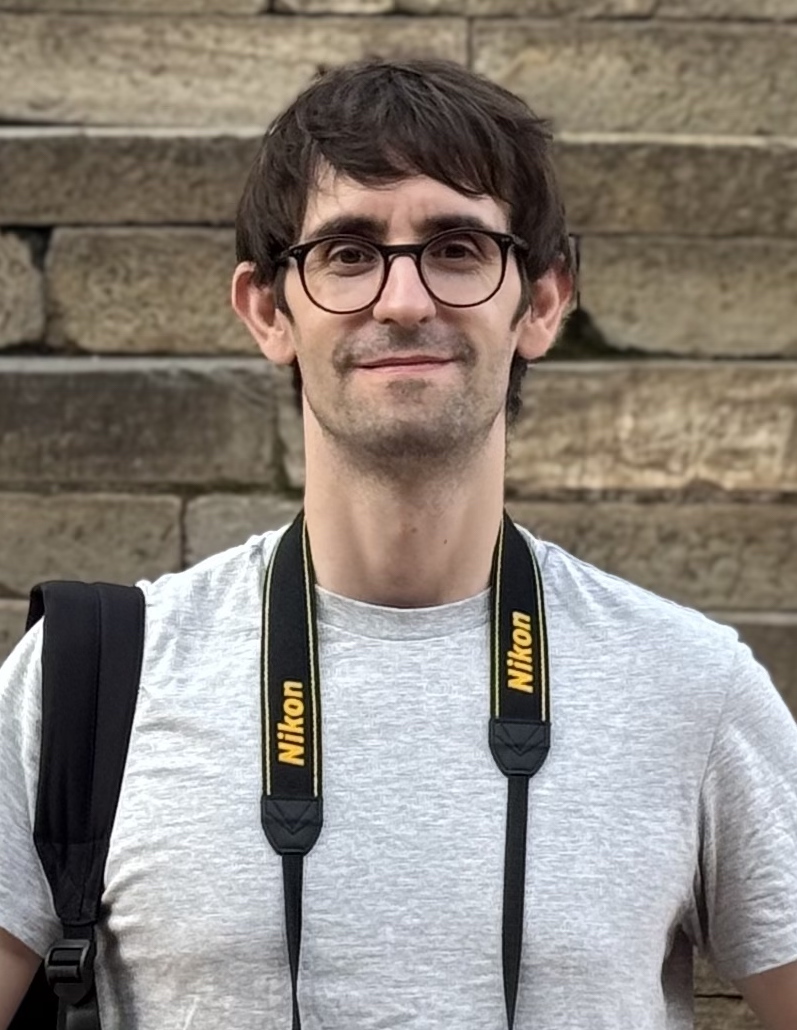A personal note on the launch of the China-EU Young Scientists Exchange Program
Published:
On 25 July 2025, I had the privilege of taking part in the launch ceremony of the China-EU Young Scientists Exchange Program in Beijing. It was one of those rare events where you walk in feeling like just another researcher and walk out feeling deeply connected to something much bigger.
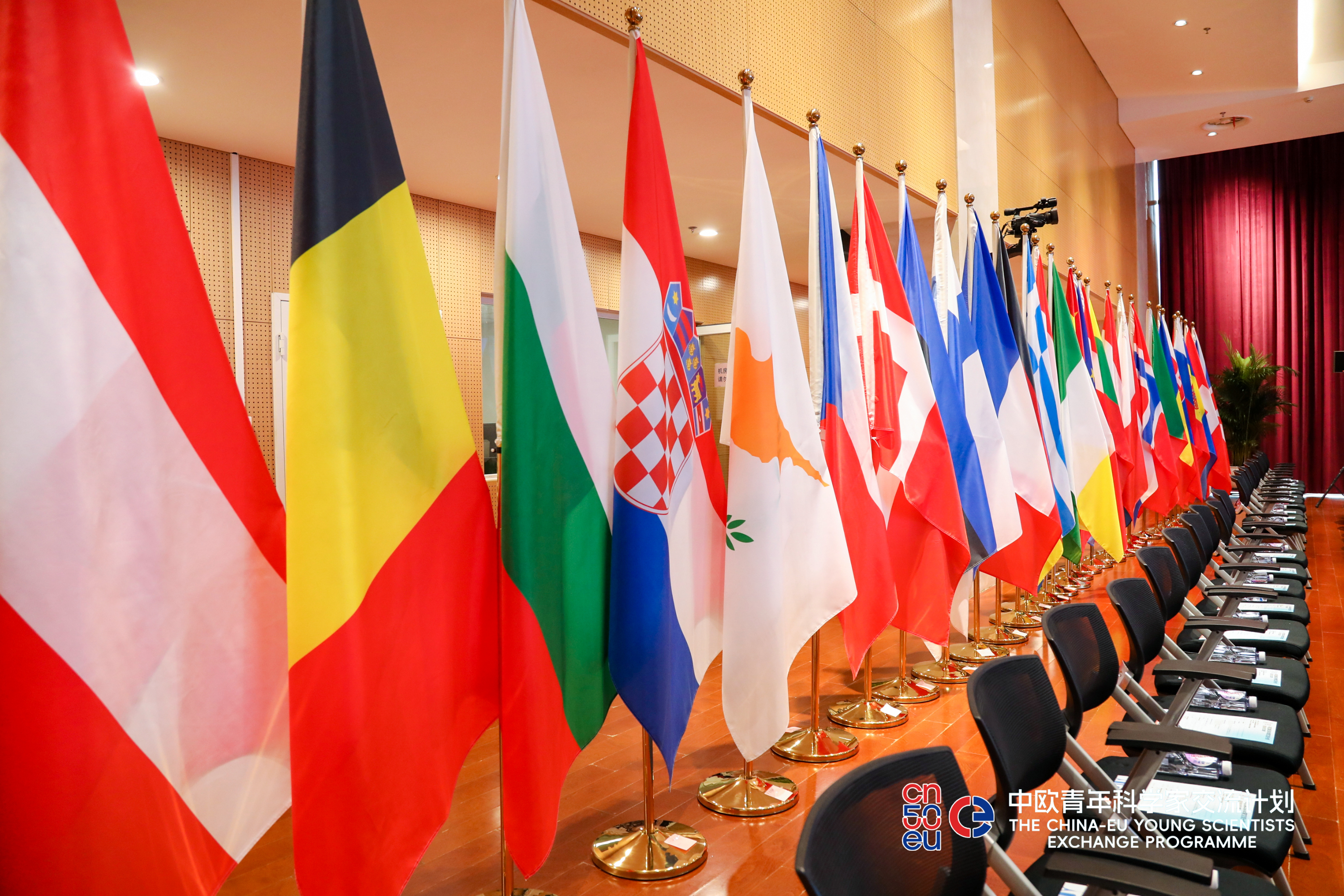
The opening ceremony of the China-EU Young Scientists Exchange Program brought together participants from across Europe and China.
The event brought together over 150 scientists and officials from across China and Europe. I was invited to speak on behalf of the European young scientists working in China. Honestly, it felt a bit surreal. A decade ago, I never imagined I’d end up doing research here, but looking back, maybe the signs were already there.
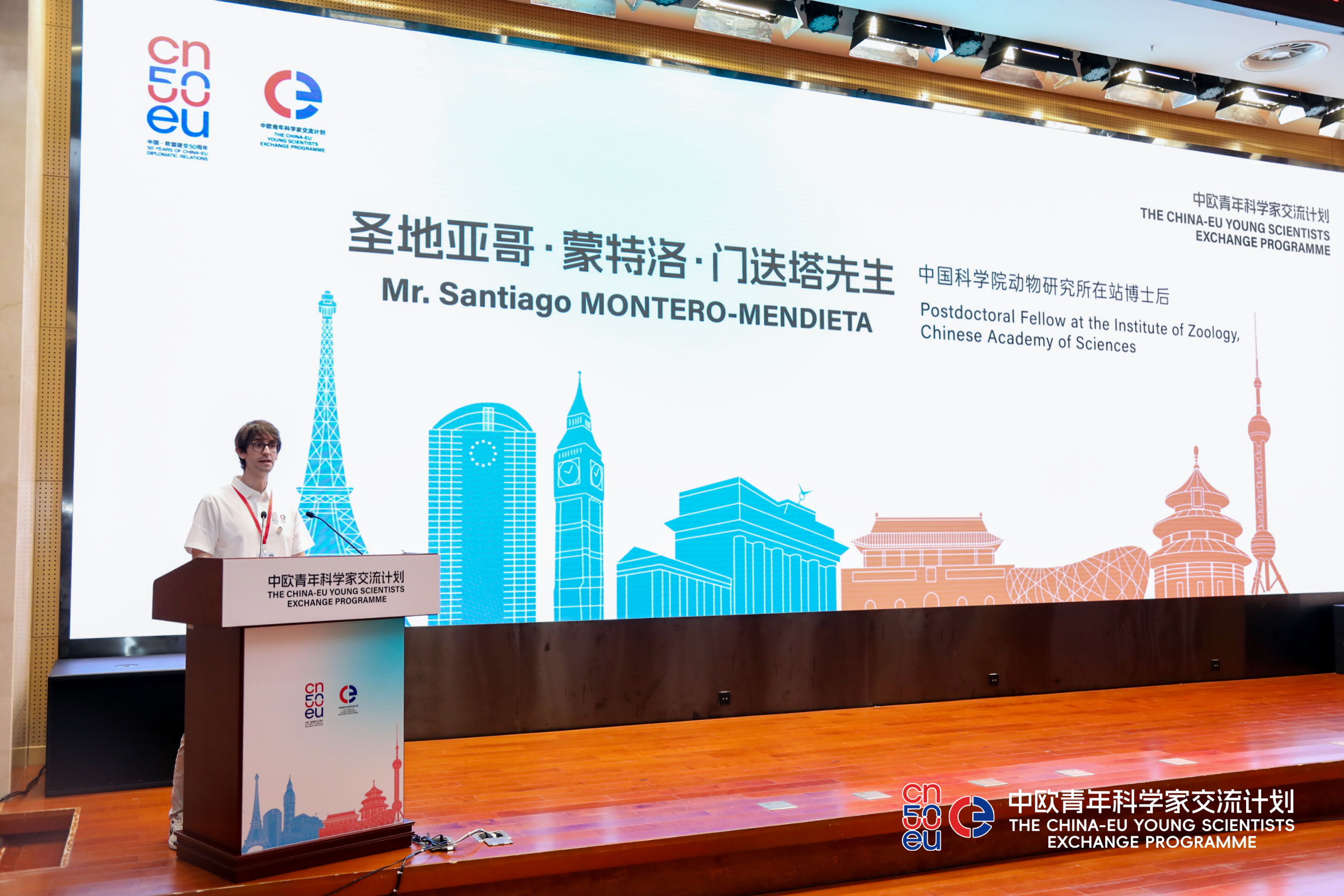
I was invited to give a talk during the opening ceremony, representing young European scientists working in China.
I still remember stumbling upon a special issue of Nature focused on Chinese science during my PhD. It highlighted not just rapid progress, but a real ambition to push boundaries in basic research. As an evolutionary biologist, that immediately caught my attention. Around the same time, I started watching videos from The Food Ranger, showing China’s food culture and friendly interactions with locals. That sparked a curiosity about Chinese culture that never really went away.
After finishing my PhD, that curiosity eventually turned into a postdoc application at the Institute of Zoology, Chinese Academy of Sciences — and I got in. I had offers from other countries too, but something about the pace, ambition, and openness of Chinese science drew me in. It still does.
At the event, I shared a bit about this journey and the importance of basic research, like my current work on fish evolutionary genomics, which helps us understand how species respond to environmental challenges. This kind of knowledge informs conservation and supports industries that rely on healthy ecosystems, like agriculture and fisheries.
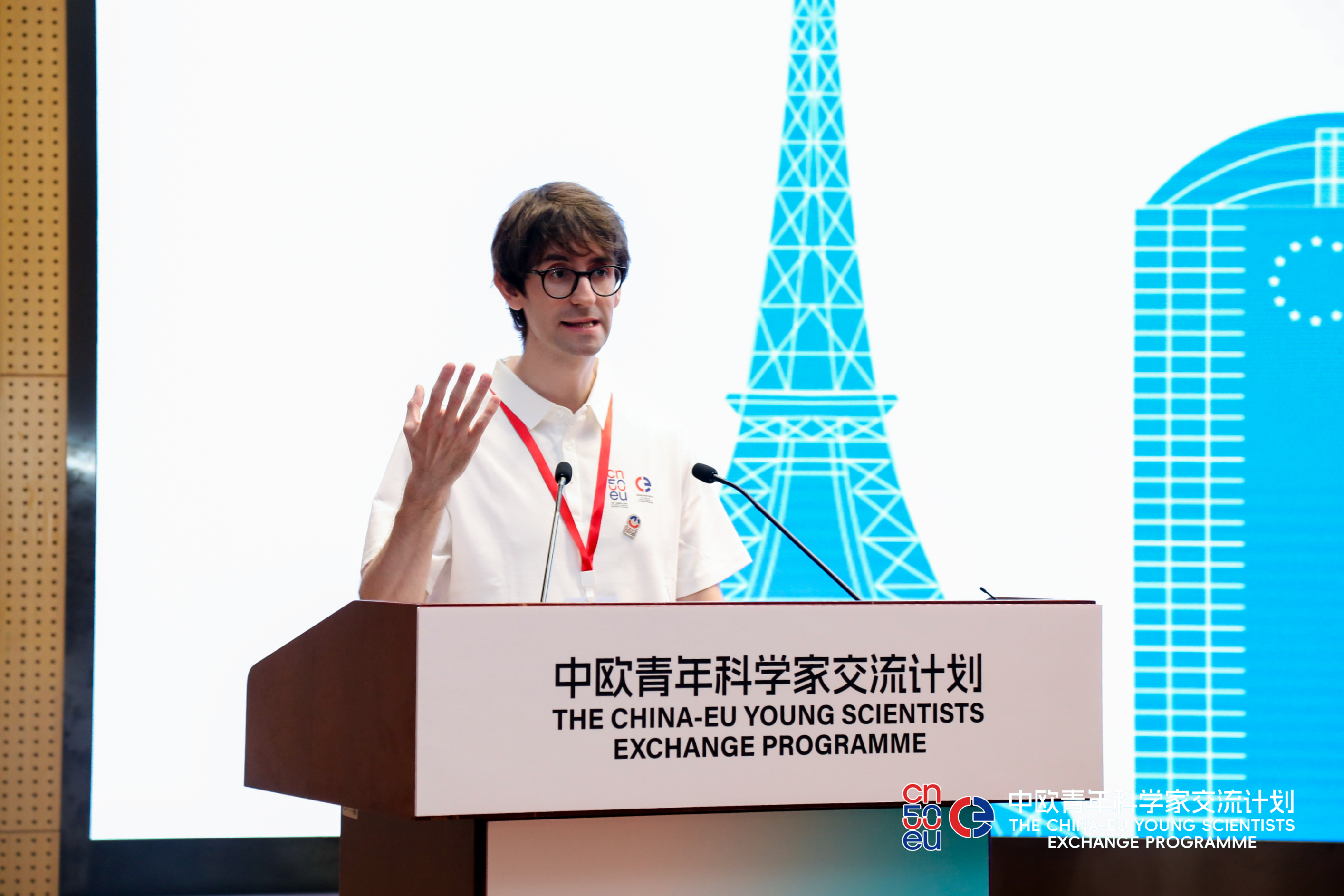
I spoke about my experience as a postdoc in China and why basic research on fish evolution matters in a changing world.
Having worked in Spain, Sweden, and now China, I’ve come to realise how important international collaboration really is. It’s not just about sharing techniques or datasets. It’s about seeing problems from different angles, asking better questions, and understanding each other beyond the headlines. That’s why initiatives like the China-EU Young Scientists Exchange Program matter.
Of course, it wasn’t just my speech. We also heard inspiring words from China’s Minister of Science and Technology Yin Hejun, Ambassador Lu Shaye, and senior scientists like Zhu Yongguan, who reminded us that we’re all part of a global scientific community. Afterwards, we had the chance to connect more casually during the youth forum and visits to research platforms.
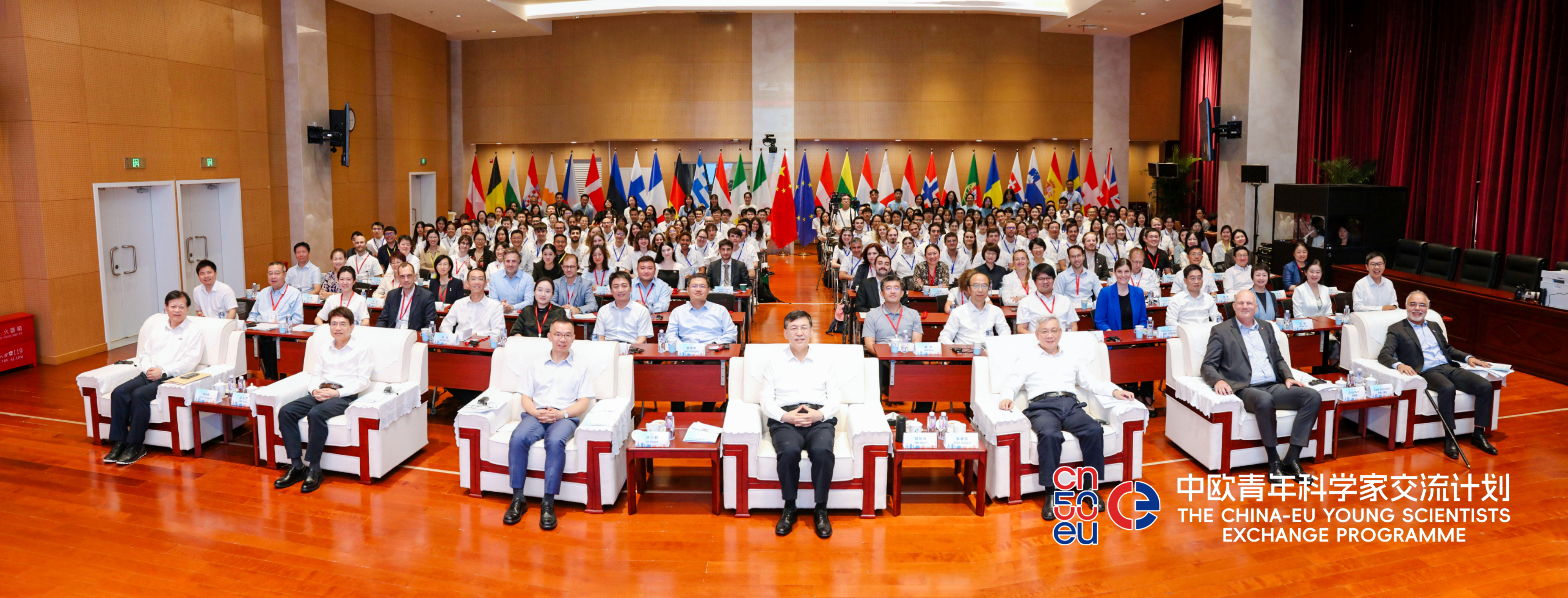
Group photo with Chinese government officials and ambassadors from several European countries.
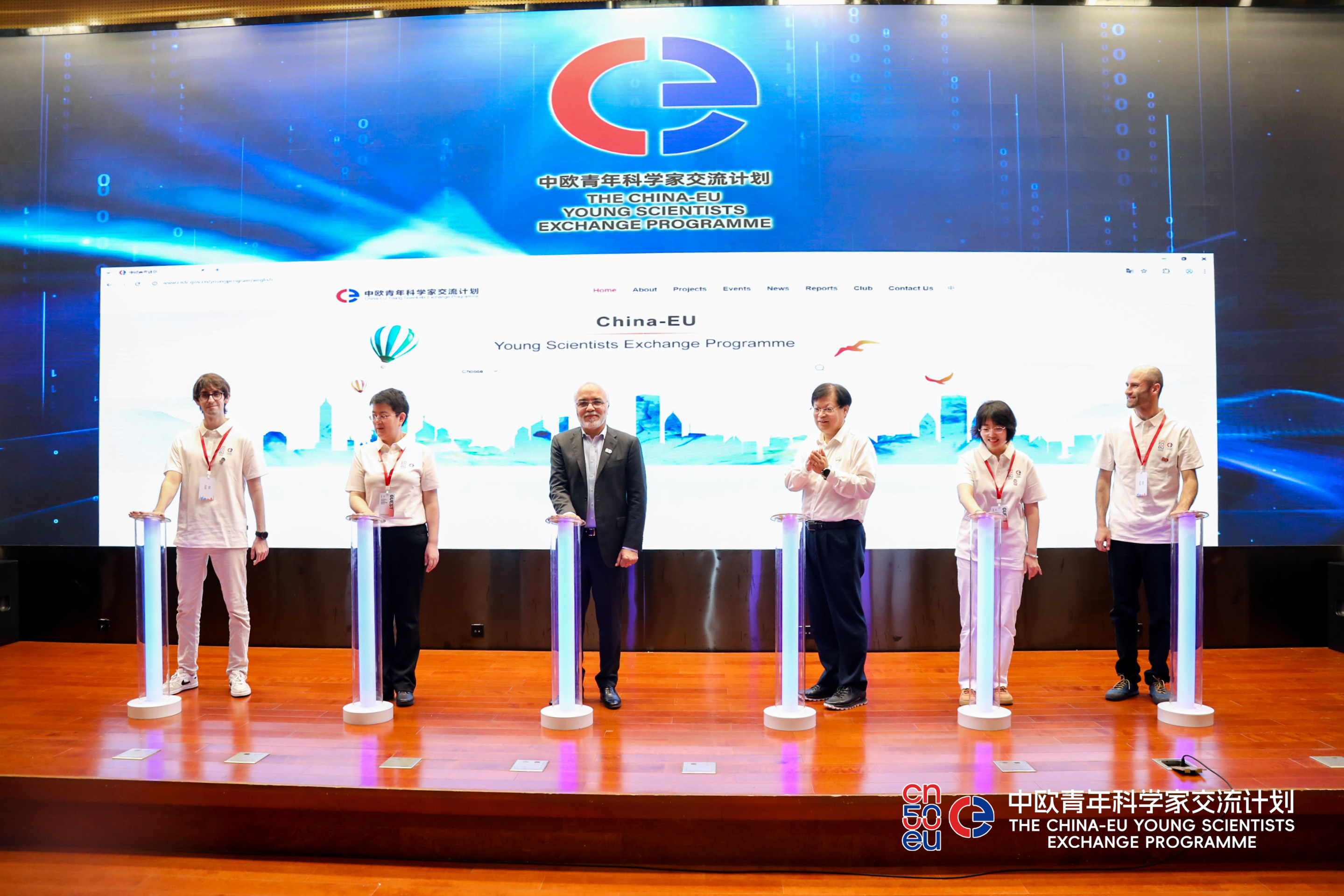
Taking part in the symbolic launch of the program’s official website, alongside other China-EU representatives.
I left the event feeling proud — not only to be part of this program, but to be one of the few Europeans who’ve chosen to build a career in China and contribute to science across borders. I hope more young researchers from both sides will take the chance to do the same: cross borders, ask big questions, and build something meaningful together.
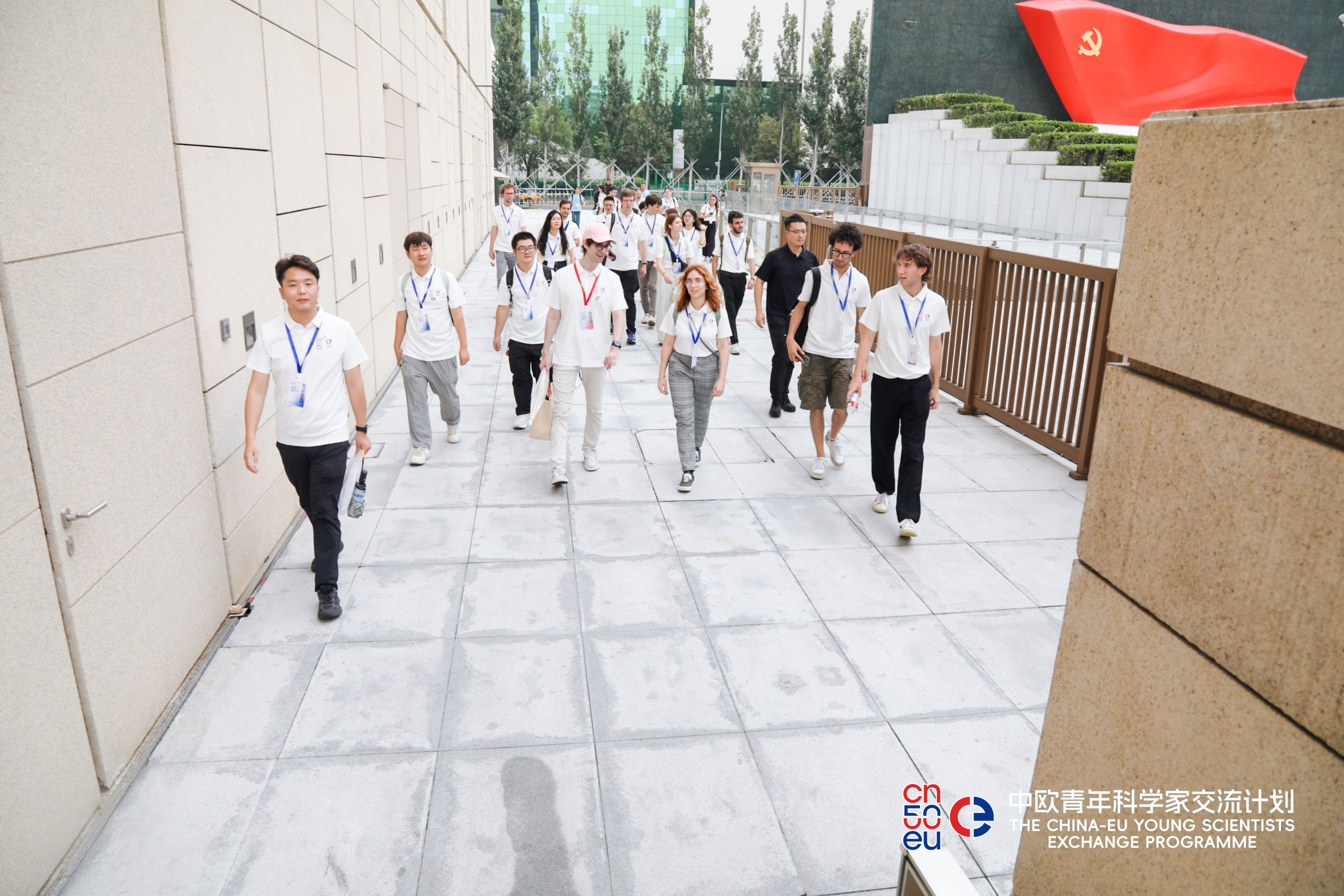
Exploring Beijing’s science museums and research platforms with other participants after the forum.
